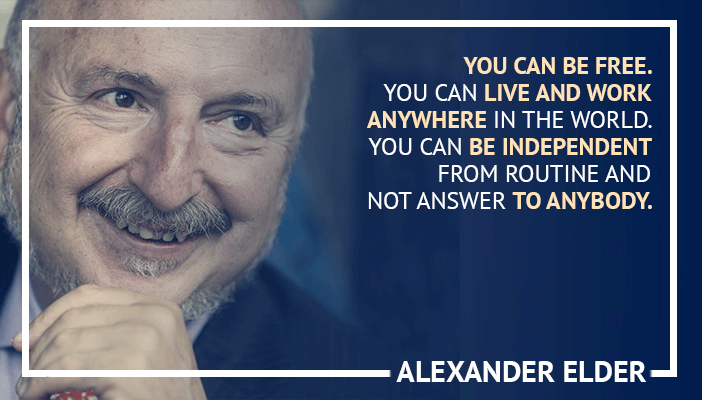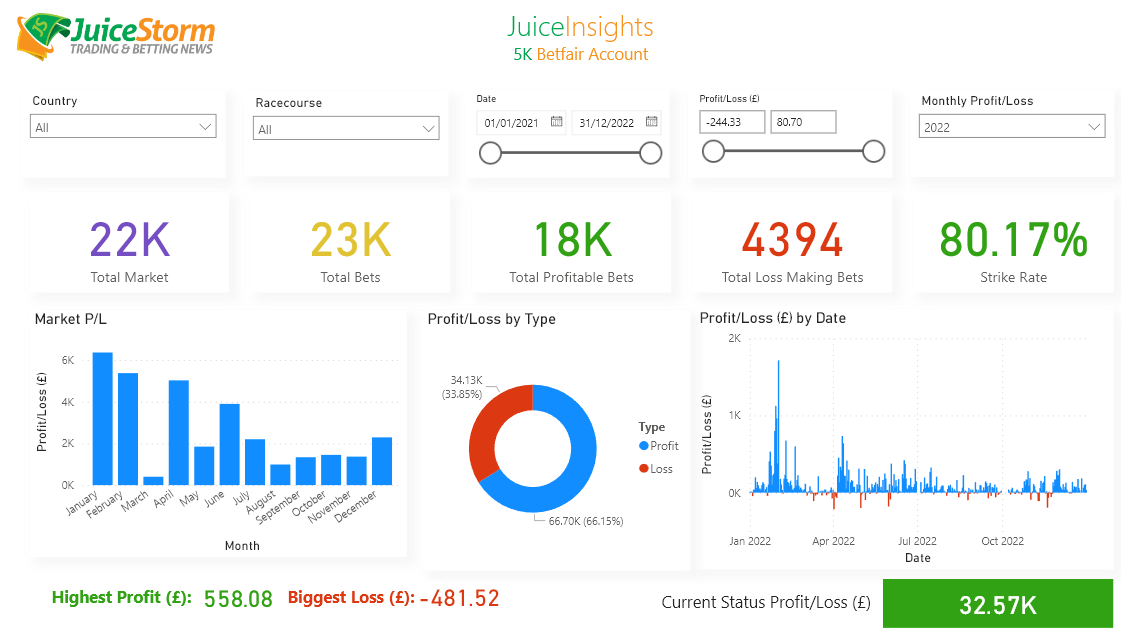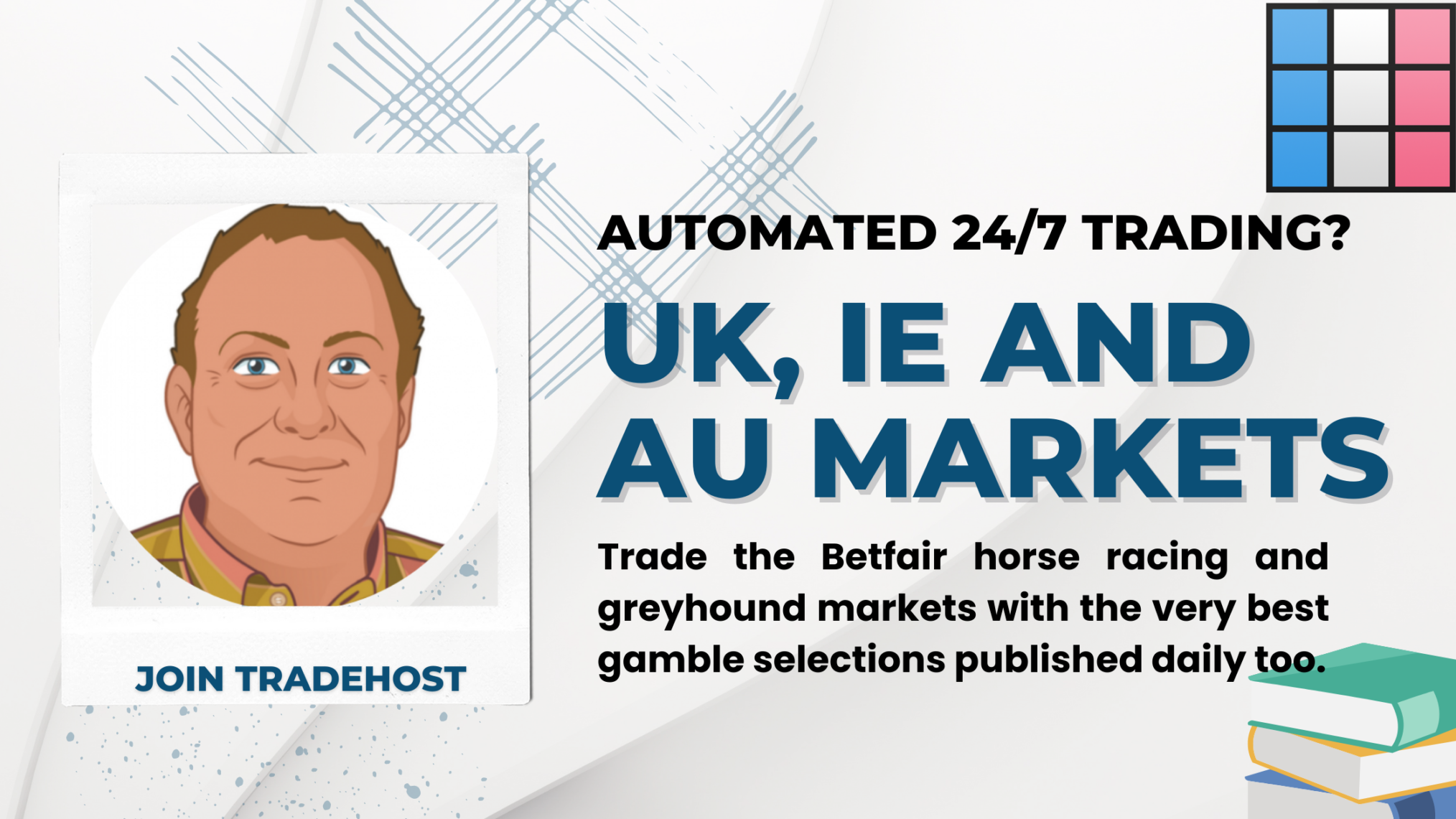Rule 1 – Develop an opinion
Whenever I hear financial traders tell me, “I don’t have any opinion, I just trade price action.” I always smile and think to myself that the trader is both an idiot and a liar if they’re a trader in my other market.
But in the betting exchange markets things are a little different.
However, the truth of the matter —in both markets— is that every time you enter the market you are implicitly rendering an opinion on the future movement of price. The difference between those traders who do so implicitly versus those who put forth an explicit reason for their trade is that the former may have no clue of what they are doing while the later at least try to figure out the story behind the trade even if they’re only using a weight of money indicator on Betfair which used to work so well.
It goes without saying that I have little respect for traders who mechanically follow price action like mindless robots elsewhere.
In the betting exchange market you get paid not for what is happening now, but for what will happen in the future and if you cannot figure out what is likely to drive price towards your target you are just a lemming in the market.
Right or wrong, developing an opinion is the cornerstone of a winning strategy in all trading markets.
Rule 2 – Let Price Confirm Your Thesis
To politely paraphrase a very crude Wall Street saying, opinions are like faces – everyone has one. Developing an opinion, even one that is ultimately correct, is utterly worthless if the market happens to disagree with your assessment.
The history of trading is littered with brilliant analysts who were absolutely correct on their calls and yet were bankrupted by the vagaries of price action before they were ever proven right.
Your opinion may be dead on, but as traders it is price movement, not opinion that we are trading. Until and unless price corroborates your opinion you have no entry signal for your trade.
Rule 3 – Manage Your Trade
More than anything else great traders are good money managers.
I’ve always believed that you can put two great traders on the opposite side of a position and often both of them will wind up making money. On the other hand put two novices in the same spot and they will more than likely both lose. Trading above all is the art of managing the unknown.
Let’s say you own a sandwich shop in a popular tourist trap. Most likely you would know to within 10 or 20 sandwiches how many customers you will have every single day of the year.
Now imagine that sandwich shop was the Betfair market.
The day to day variance would drive most sandwich shop owners insane. Some days you may sell 500 sandwiches, other days you may have to dump all your food supplies into the garbage as no business came through your door.
You really do not need to get involved on the favourite in every UK horse race. And if you do you probably won’t be around long! Burn out and over trading spring to mind. But there are notable exceptions to every rule!
That’s why trading at its core is always about managing risk.
Every time you trade the operating principle is hope for the best and prepare for the worst. The only way I’m able to control risk and at the same time participate in the market is by always cutting my position in half once a short profit target is met. As little as 1 or 2 points on the betting exchange. And let the rest run with a break even stop. No matter what anyone tells you, there is simply no way to know if any given trade will be successful. But I really believe that half a loaf is better than none.
Success in trading is contingent not only on your analysis but on your ability to properly manage your position.
That is why the game is hard.






Excellent post – it explains trading very well and I think I will get people I know to read it as it will help them understand what I do better!
Hi Leon, thanks mate and I look am looking forward to you being a guest on Wednesday. Stay lucky.
I enjoyed the read about trading. Sums up for me why personally I am not a very good manual trader. On the flip side my bot which does what it is told is much better.
The opinion bit is so important. There a few phrases that all keep me honest. One is a price of a selection only indicates the general opinion of people and can bear no reflection on its actual chance. The second is that a horse has no idea what price it is.
Trading is often is more profitable when you don’t share the same opinions as the majority which fortunately clearly I don’t, since I find horse racing the most profitable and predictable sport.
Hi Brian, glad you enjoyed it mate and thanks for the comments.
Not sure I agree with Rule 2 for all trading types – momentum traders – yes, value traders – no.
http://green-all-over.blogspot.com/2008/11/my-correct-opinion-is-worthless_25.html
Hi Cassini, thanks for for dropping in.
I take your point. But for me I like to see the price of a horse moving towards the price I feel it should be before I’ll enter a trade based on it continuing in that direction. Often I’ll be wrong though.
If I go against the momentum simply because of my opinion of value then I will not be comfortable. No matter how much I value my opinion.
I’m sure you know that many losing punters looking for value use flawed logic betting favourites. Because favourites win about 30% of races these punters think that by backing favourites which are at better percentage odds than 30% they will show a profit. So they back favourites at better odds. All that happens is the winning strike rate of these favourites adjusts downwards so backing these favourites still loses money. But they’ve had great value so it makes it worthwhile?
Another aspect of value and its uncertainty is from bookies who are just guessers IMO, they price up from the tissue and copy the guy in the next pitch. Try to get decent money on and you will be wasting your time. Value is a myth. The “professionals” won’t even stand by it. In case they’re wrong.
However, the most successful betting exchange traders are usually very opinionated and yes, many would trade in the way that you describe. Would they be more successful if they didn’t? We’ll never know. They’ll never change.
This article was about trading. Your “… style is to watch the game, form opinions (often flip-flopping many times during a game)” and “…to find value by disagreeing with the market.” Sir, you have a gift. Few share it. And good luck in your search for value. It works for you and so I can’t knock it – for you. But going against any market and basing any trade on your opinion when the market doesn’t share it could be a recipe for disaster.
Many will disagree with me Cassini. And that’s fine. But I welcome the debate. Ladies and gents, have a great day finding value, trading, gambling or whatever combination floats your boat. And good luck to you all as always.
[…] was in response to my original post below where Rule 2 started a rather lively discussion as you’ll see above. Rule 1 […]
Comp